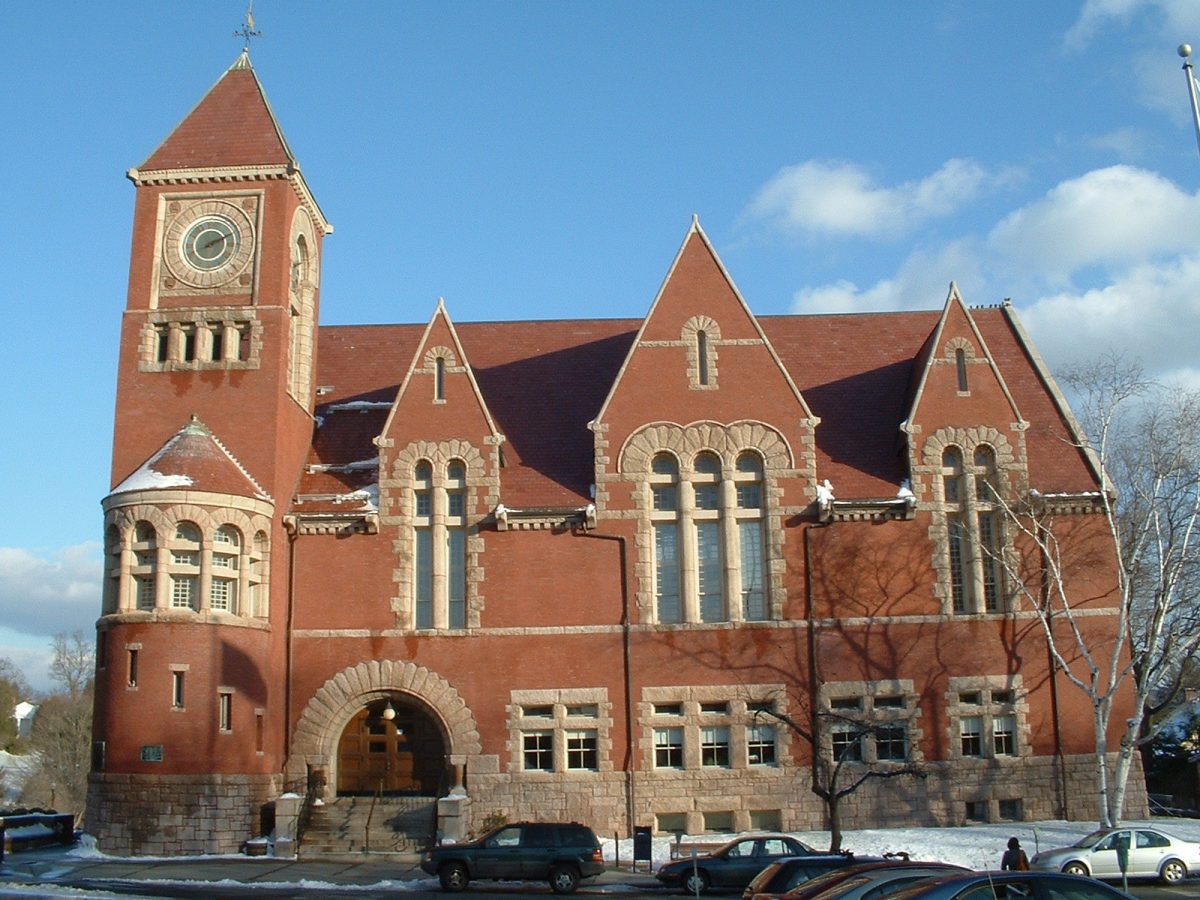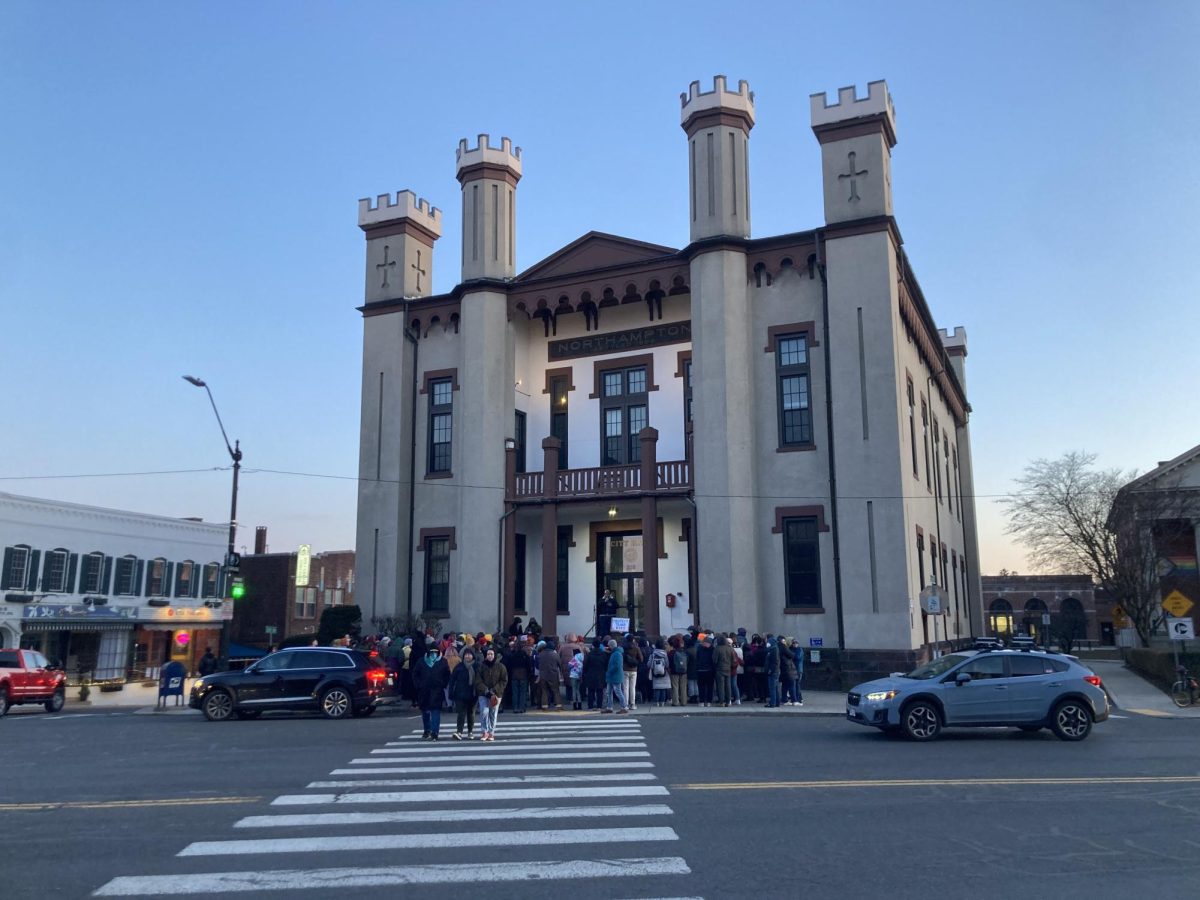
Disagreement remains within the Amherst Charter Commission as to whether a town council and mayor form government will be the best option for residents, despite commissioners having voted to seek out this town government model months ago.
This process of searching for an alternative form of government to the current one in place began on March 29, 2016, when over 2,000 Amherst residents voted to form the Charter Commission, according to an article written by 22News.
In a straw-poll held in December, the commission voted five to four to pursue a 13-member town council model to replace the current 240-representative town meeting model. Another vote was held in February, where the commission voted six to three to replace their executive body – which consists of a five-member select board and a town manager – with a mayor.
Charter Commission Chair Andrew Churchill voted in favor of both the town council and mayor propositions. As to his reasoning, he said, “We run an $80-million operation, and we have a mini-city of UMass within our midst. We have big city challenges, or at least small city challenges, and our town meetings move very slowly, and our government isn’t very nimble.”
William Kenny of Amherst is one resident who shared Churchill’s viewpoint, stating in an interview with 22News, “I think the structure of town meeting is pretty unique for the town and it’s been a good representation, but I think it’s also convoluted and not as representative of the town itself.”
Under the current town structure, the Town Meeting and Select Board are elected by Amherst voters, and the town manager is appointed by the Select Board. While the town manager is responsible for the running of all town departments and functions, except for the schools and libraries, and for the hiring of employees, Town Meeting representatives meet twelve nights out of the year to make decisions that include money appropriation, law creation and land use zoning.
Commissioner Gerald Weiss, who voted to stick with the town meeting structure, believes the town meeting model is far more representative than a town council form, citing the 240 to 13 representative difference between the two models.
“While proponents of town councils say it’s more representative, the minority says this is absolutely false,” argued Weiss.
Churchill believes, though, that town meetings promote an “all-or-nothing” style of citizen participation.
“Either you were in our representative town meetings, in which case you spent a lot of time – 12 nights a year maybe – participating, or you’re on one of our committees. But if you weren’t in one of those positions, there wasn’t a lot of participation for you and there wasn’t a lot of representation for you,” he said.
In terms of the dispute on the productivity of town meetings, Weiss attributes the cause of this fight to zoning. Many residents have shown frustration toward the town meeting in the past, as it has had to turn down zoning propositions that residents believed “would increase prosperity,” according to Weiss.
While Weiss doesn’t agree with this perspective, he recognizes that there is the “belief [that] by increasing the size of buildings, this will increase prosperity.”
“A lot of people share that opinion,” he added. However, he said, changing zoning restrictions requires a two-thirds majority amongst town meeting representatives, a difficult task to achieve.
Adding to his argument against the town meeting model, Churchill noted, it is difficult for individuals to have a main point of contact for problems or concerns within their precinct, when there are 240 representatives serving the needs and interests of 10 precincts.
“If you want to communicate with somebody about the issue, are you going to contact all 24 of those people?” said Churchill. “And some of those people don’t even see themselves as representing their constituents. They basically say, ‘There’s so many of us, so together we represent the town.’”
Churchill also brought up that the demographics of town representatives does not represent Amherst voters.
“There’s more people who are older and retired and have time on their hands than there are young families, parents or college students. So it wasn’t particularly representative,” said Churchill. “It’s basically a self-appointed group of people with a lot of time on their hands, and they’re not doing a very good job of representing the broader town.”
In terms of this criticism, Weiss said, “I don’t buy that argument at all,” noting that the average age of town select board members is “very close to the same age as the U.S. Senate or house of representatives.”
“I don’t remember which,” he added.
One of the major issues that Weiss and other critics see with a town council/mayor model, is finding avenues for citizens to participate in governmental decision making.
To address this concern, Churchill cited ideas that the commission hopes to implement in their planning. These include precinct meetings to allow residents to speak with their councilor, as well as the idea of having a resident engagement officer, “whose job would be to communicate with the public and let people know how they can get involved,” according to Churchill.
Churchill also brought up the idea of participatory budgeting, a process used in Cambridge and other cities and towns, where a part of the municipality’s budget is set aside for citizens to decide how it’s used.
However, Weiss argued that participatory budgeting only makes up “a small percent of the budget.” And in regards to precinct meetings, while Weiss views them favorably, he also noted, “They don’t have power.” They can only voice their opinions, according to him.
Despite his strong opinions of how Amherst’s government should be structured, Weiss said, “I think that the majority of people in town, want their town to run well.”
“As long as its’s working, they’re fine,” he added. “I think there may be 1,000 people who actually care about what form of government they want.”
The commission’s preliminary report will be released on July 31, and a final report will be released on Sept. 29. Amherst voters will then vote in March of 2018 on whether or not to go with the commission’s recommendation.
“So that will be about six months, where the towns people can think about it, talk about it and see whether they want to do it or not,” said Churchill.
Jackson Cote can be reached at [email protected].



















